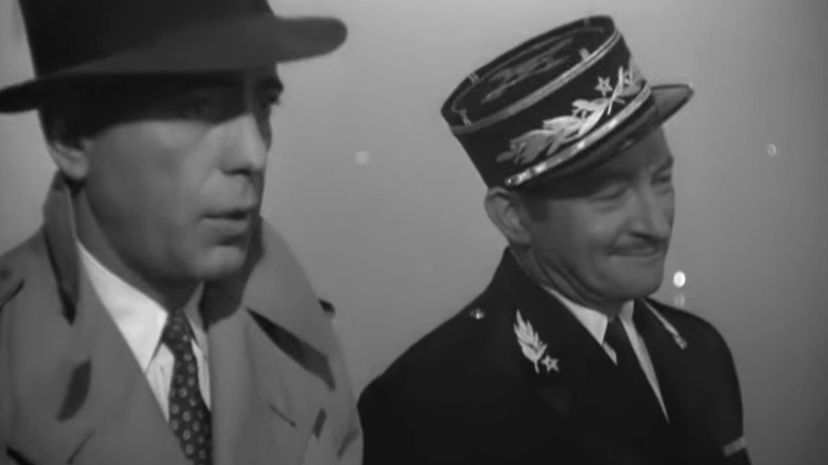
About This Quiz
For real movie fans, half the fun of going to the cinema is repeating those great, funny or memorable lines of dialogue. Some dedicated cinephiles seem to be able to hold whole conversations made up of just their favorite film quotes! Everyone has a favorite line or two, and the great ones become a sort of cultural shorthand for a multitude of situations and emotions. Without a doubt, the best dialogue and the most memorable movie quotes come from those cinematic gems released between 1939 and 1980 — films the postwar generation grew up on.
The baby boomers, that generation that was born roughly between 1946 and 1964, was the first to come of age with the movies as an established force in American life. Classics from Hollywood's golden age were in endless rotation on television while the very act of going to the movies was combined with that other American obsession, the automobile, thanks to the rise of the drive-in. Just as the baby boomers grew up, so did the movies. By the 1970s, the boomers were entering the film industry and bringing with them a point of view informed by both the tumult of the previous decade and a love for classic cinema. As we enter the third decade of the 21st century, boomers and their influence continue to shape modern cinema.
Okay, boomer. This quiz is just for you — the kids who were hooked on the late show, snuck into the drive-in and made movie brats like George Lucas and Martin Scorsese the cinematic darlings of the '70s. Can you match the classic movie quote with the character?
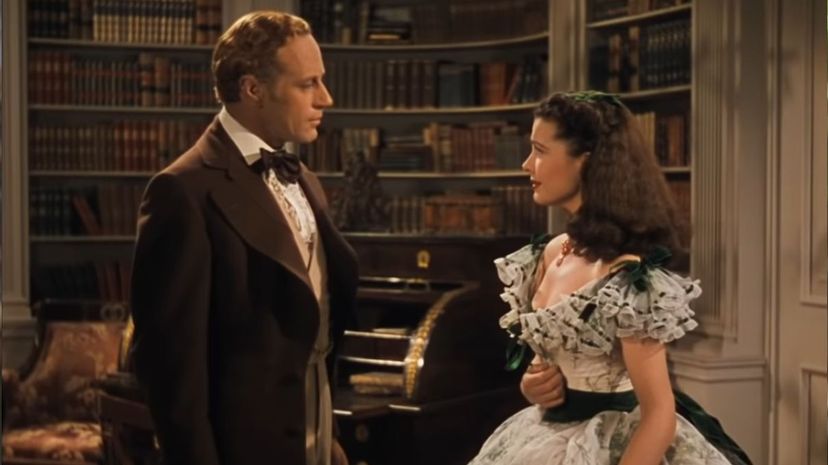
When adjusted for inflation, the 1939 Civil War drama "Gone With the Wind" remains the most profitable movie of all time. Over the course of the film, Scarlett O'Hara (Vivien Leigh) transforms from mercurial, spoiled rich girl to courageous woman with an indomitable will and optimistic spirit.
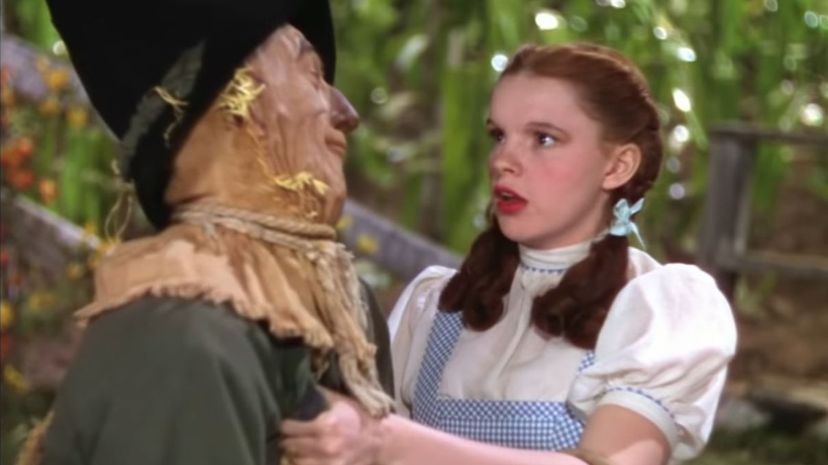
"The Wizard of Oz" has been part of the pop culture landscape for over 80 years. Dorothy's iconic line " ... I have a feeling we're not in Kansas anymore" has become shorthand for entering strange or unusual territory. Often misquoted, it is nonetheless universally understood.
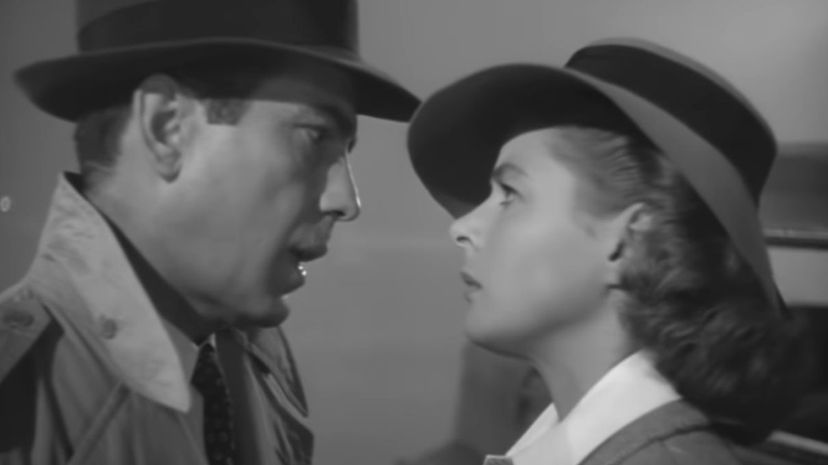
Humphrey Bogart and Ingrid Bergman's last goodbye in the 1942 classic romantic drama "Casablanca" alone contains some of the most quoted lines in Hollywood history. Facing an uncertain future, Bogie's Rick Blaine reminds his former love that they'll "always have Paris."
Advertisement
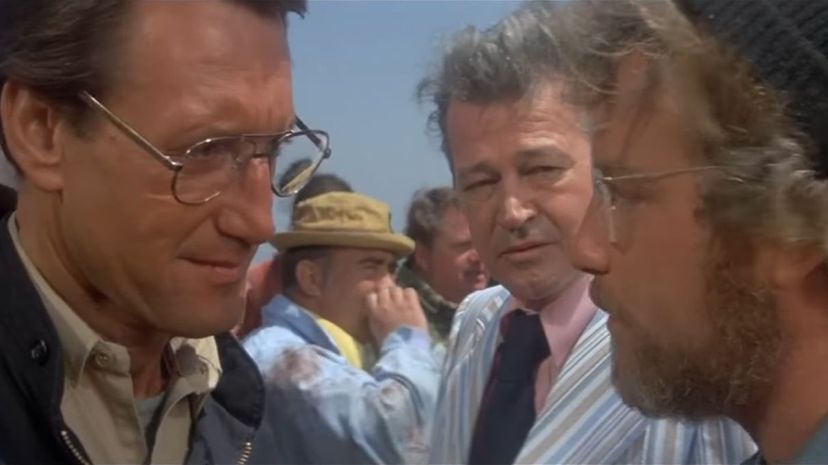
"Jaws" made Steven Spielberg the king of the blockbusters. To build suspense (and hide the prop's flaws) Spielberg kept the killer shark offscreen for much of the film. Roy Scheider as Chief Brody is the first to see the great white in all its glory and intones the now-famous "bigger boat" line.
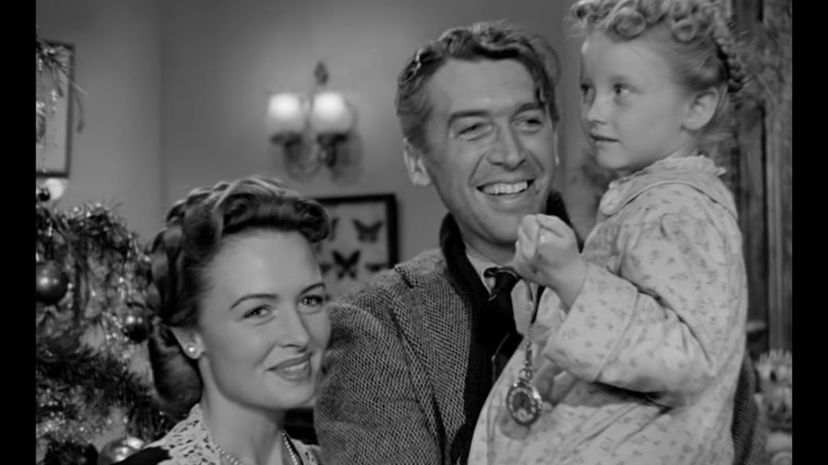
Few films are as beloved as Frank Capra's "It's a Wonderful Life." Although it's Clarence Odbody, AS2 (Angel Second Class) who first tells us that every time a bell rings, and angel gets his wings, it's little ZuZu Bailey's enthusiastic delivery of the line that brings down the house.
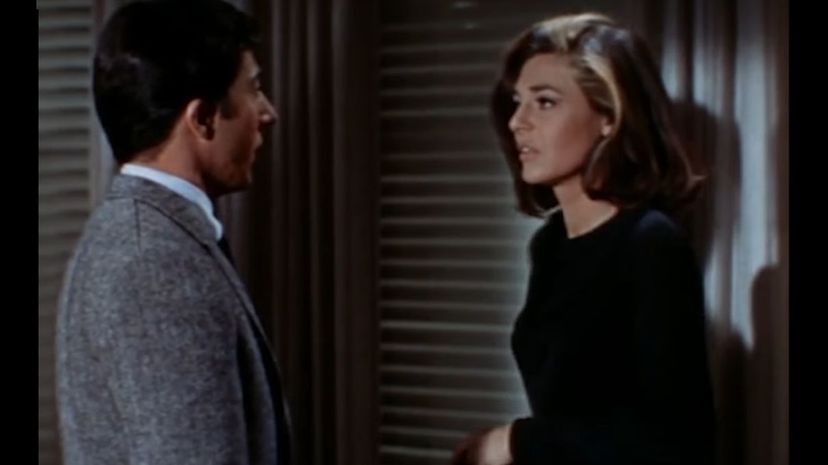
Dustin Hoffman stars as aimless college graduate Ben Braddock in Mike Nichols' 1967 comedy "The Graduate." Returning home for a party in his honor, Ben finds himself in an uncomfortable situation with family friend Mrs. Robinson (Anne Bancroft) whom he quickly discovers is trying to seduce him.
Advertisement
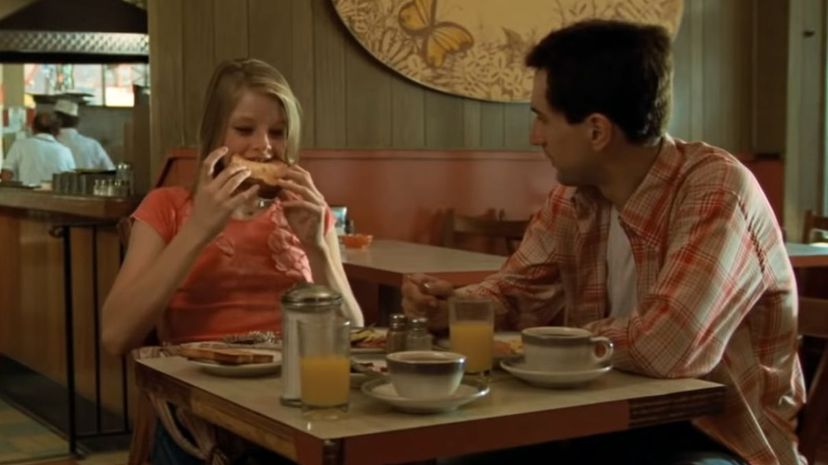
Robert De Niro stars as Travis Bickle, an unbalanced Vietnam vet who takes a job as a New York cabbie in 1976's "Taxi Driver." In one of the film's most disturbing scenes, Bickle practices his quick draw in the mirror repeatedly asking, "You talkin' to me?" as he rehearses for confrontation.
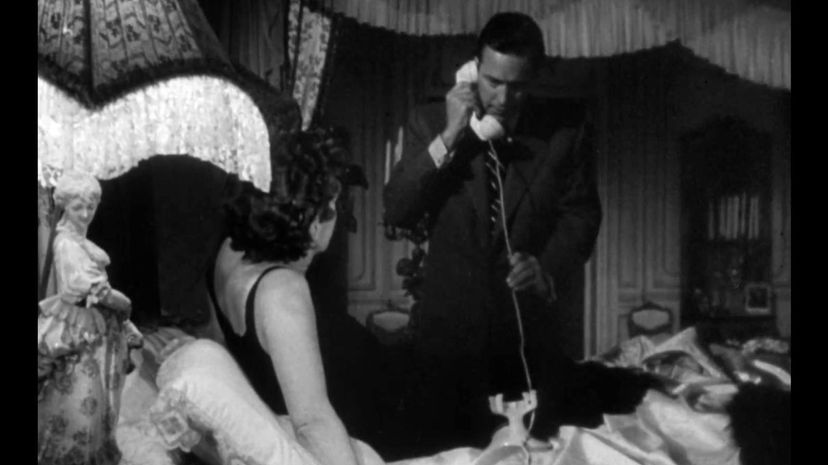
Gloria Swanson stars as unhinged ex-silent movie star Norma Desmond in Billy Wilder's "Sunset Boulevard." Consumed by ego and madness, Desmond's comeback turns murderous when she meets failing screenwriter Joe Gillis (William Holden).
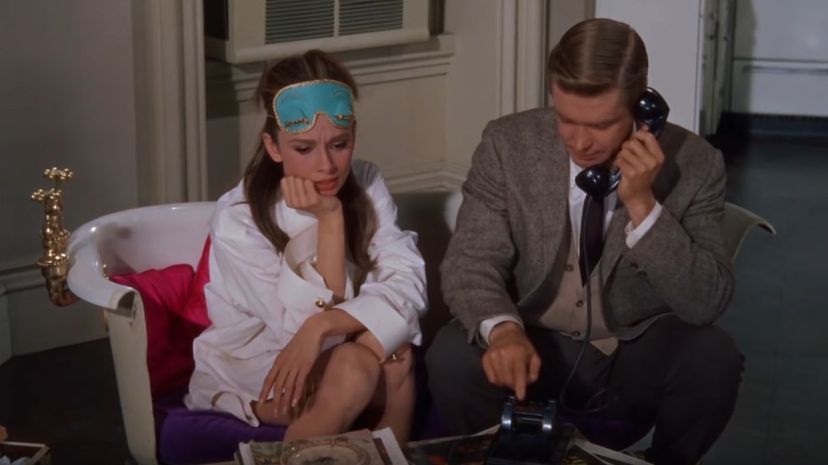
In one of her most celebrated roles, Audrey Hepburn stars as girl-about-town Holly Golightly in Blake Edwards 1961 comedy "Breakfast at Tiffany's." In the film, Holly explains the severe variety of the blues she gets on occasion, which she calls the "mean reds." The only cure is a trip to Tiffany's.
Advertisement
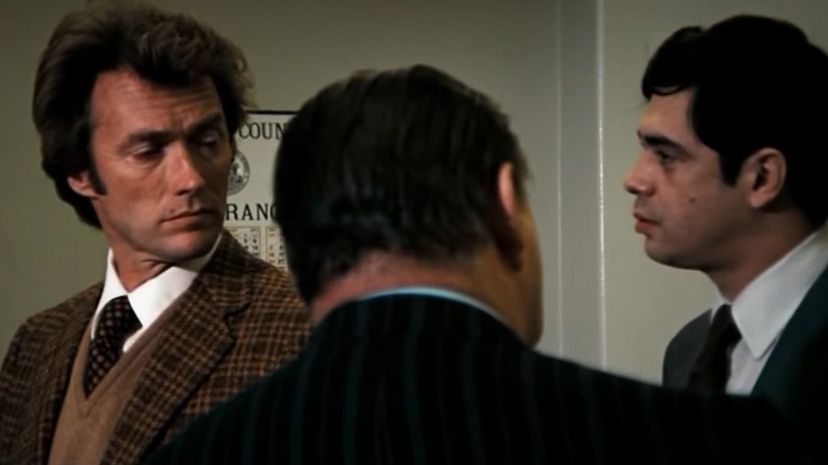
Clint Eastwood first portrayed steely-eyed, loose cannon cop Harry Callahan in 1971's "Dirty Harry." Although the character has had many iconic lines of dialogue throughout the five "Dirty Harry" films, his delivery of the famous "Well, do ya, punk?" dialogue is still his most powerful.
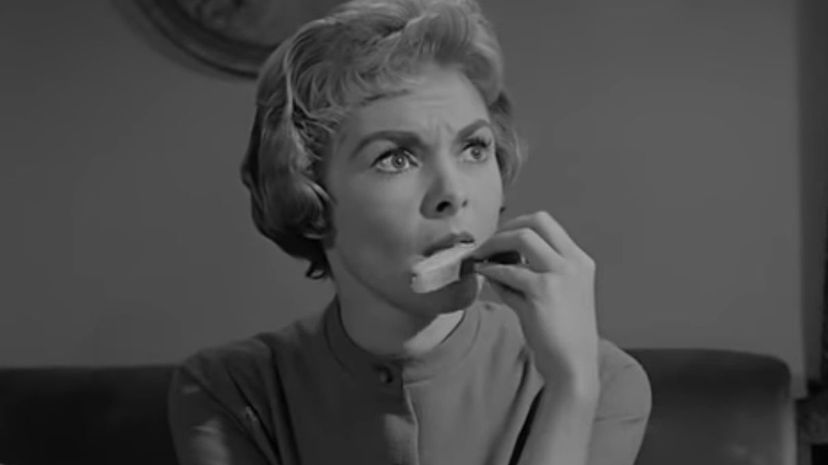
In one of "Psycho's" most suspenseful exchanges, meek hotelier Norman Bates (Anthony Perkins) explains why he won't have his unstable mother committed to fugitive Marion Crane (Janet Leigh). Teetering on the edge of anger, Bates rationalizes "We all go a little mad sometimes."
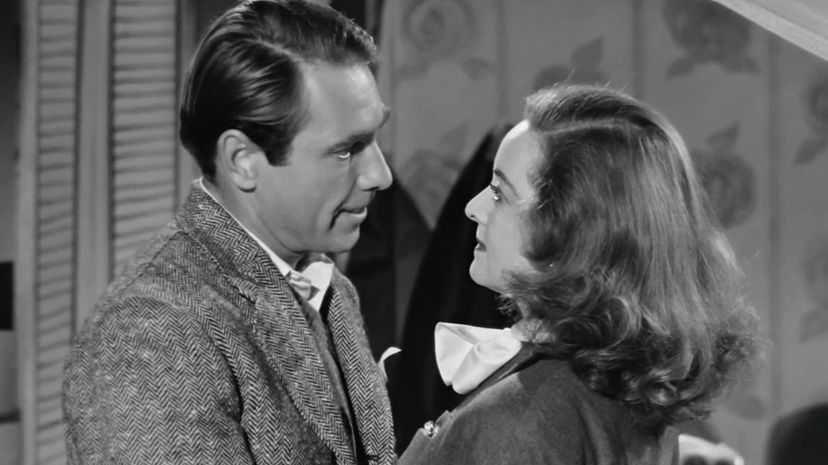
In a signature role, Bette Davis stars as aging Broadway actress Margo Channing in "All About Eve." Channing gets more than she bargains for when she takes opportunistic fan Eve Harrington under her wing. Margo delivers the famous quote at a party where Eve makes herself the center of attention.
Advertisement
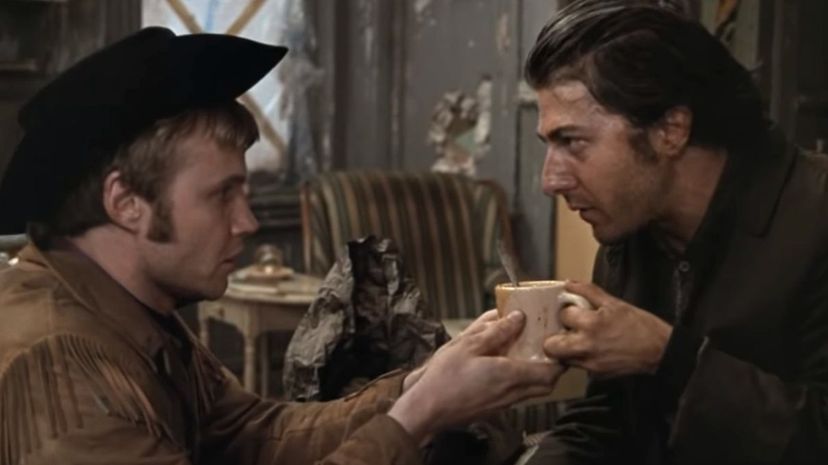
"Midnight Cowboy" is the story of an unlikely friendship between Joe Buck, a wannabe hustler, and Ratso Rizzo, a sleazy conman. Although the film's producers dispute it, actor Dustin Hoffman maintains that his line as Ratso, "Hey! I'm walkin' here!" was improvised when he was nearly struck by a cab.
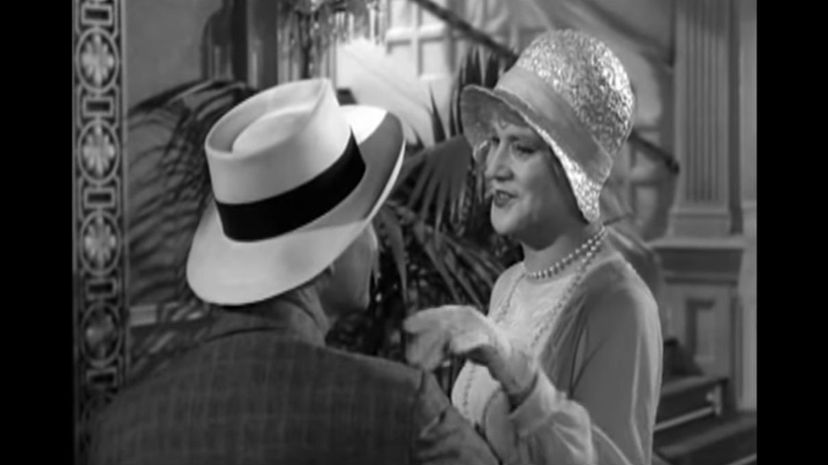
"Some Like it Hot" stars Jack Lemmon and Tony Curtis as musicians who go on the lam in drag after witnessing a mob hit. In the film, millionaire Osgood Fielding III falls for Lemmon's female persona which, when exposed, leads the unfazed yachtsman to say "Well, nobody's perfect."
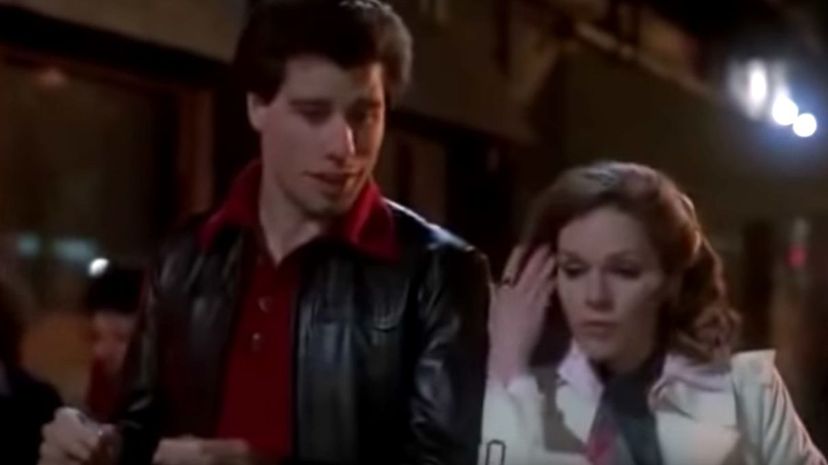
"Saturday Night Fever" launched John Travolta from TV heartthrob to international stardom. Travolta stars as disco king Tony Manero. In a scene that's both funny and filled with tension, Tony and his family get into a brawl, with the vain dancer warning his father to be careful with his coif.
Advertisement
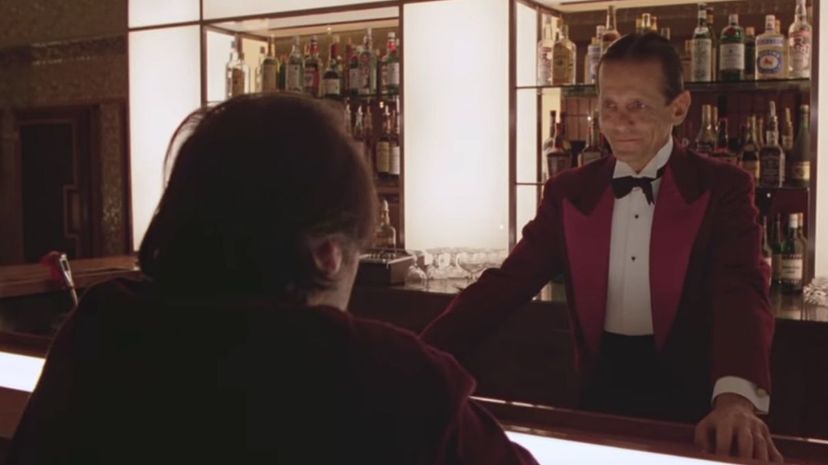
Stanley Kubrick brought Stephen King's novel "The Shining" to the screen as one of the most frightening films ever. Jack Nicholson improvised his memorable "Heeere's Johnny!" dialogue. The sheer insanity of Nicholson's ad-lib (co-opted from Ed McMahon) prompted Kubrick to keep it in the film.
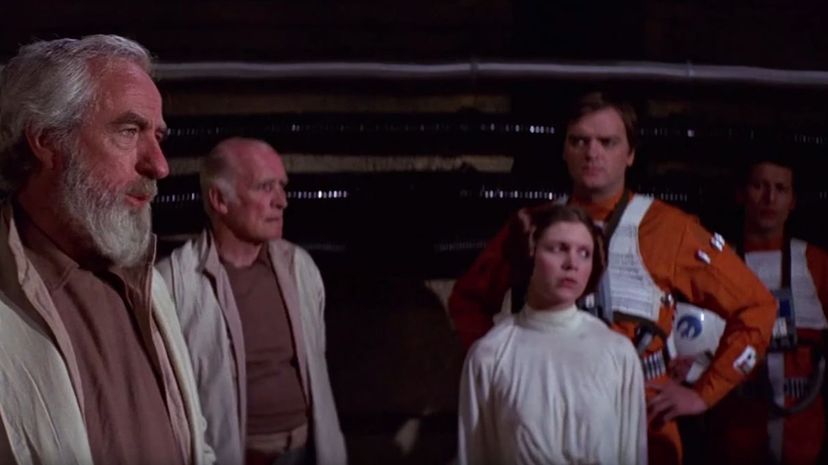
This one surprised us! Despite being the quote most associated with "Star Wars," "May the Force be with you" is first uttered by the relatively minor character General Dodonna (Alex McCrindle) while briefing the rebel pilots before the Death Star assault.
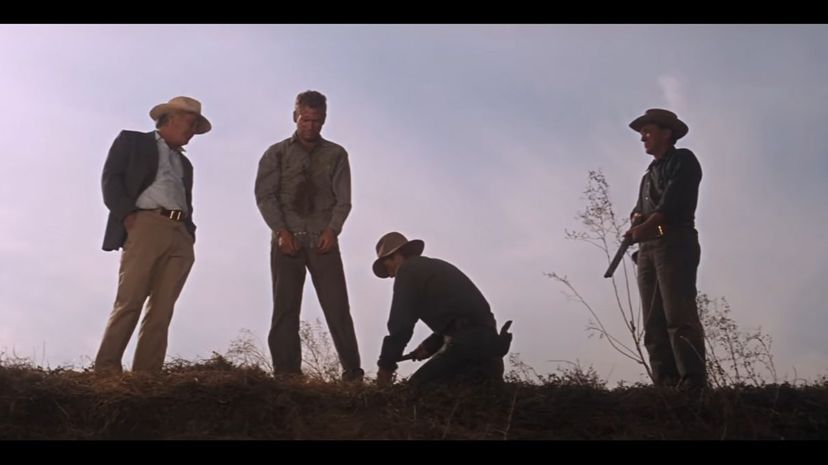
"Cool Hand Luke," directed by Stuart Rosenberg, stars Paul Newman as Luke Jackson, a prisoner who will not be broken. After brutally beating the indomitable Luke, the captain, portrayed with sadistic glee by Strother Martin, explains, "What we've got here is failure to communicate."
Advertisement
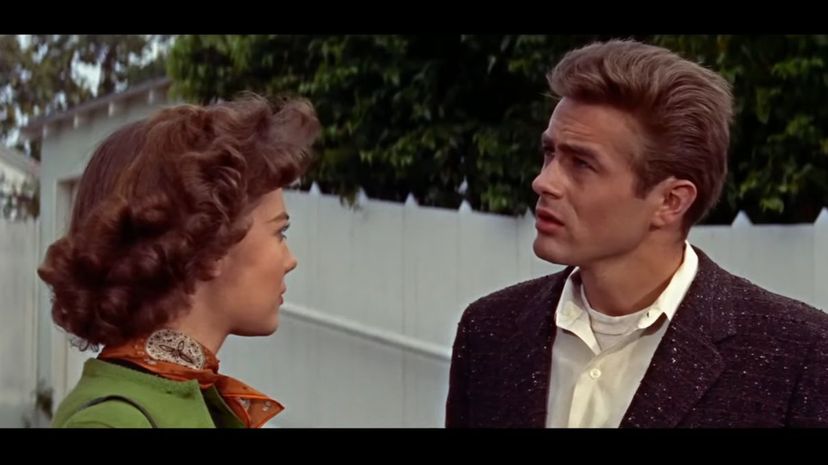
Directed by Nicholas Ray, "Rebel Without a Cause" was one of the first feature films to address juvenile delinquency in the suburbs and the widening generation gap. James Dean stars as Jim Stark, a troubled kid whose bickering parents are "tearing him apart."
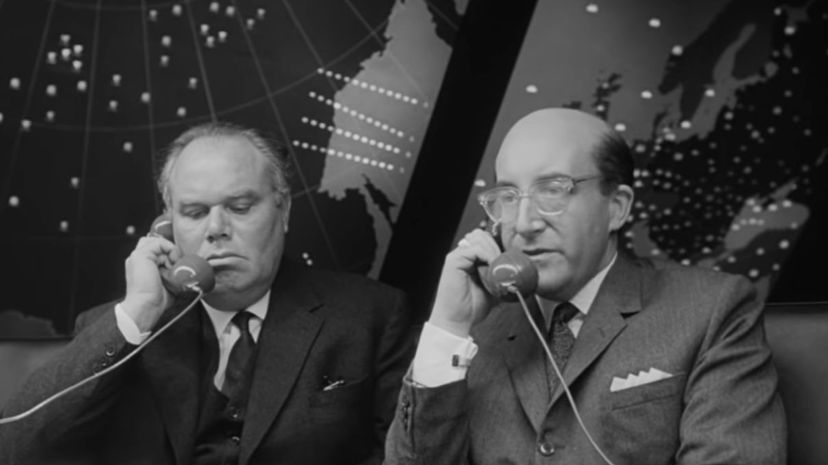
Global nuclear annihilation has never been funnier than in Stanley Kubrick's Cold War comedy "Dr. Strangelove." In one hilarious sequence, U.S. President Muffley (Peter Sellers) breaks up a brawl between his general and the Soviet ambassador, admonishing them not to fight in the War Room.
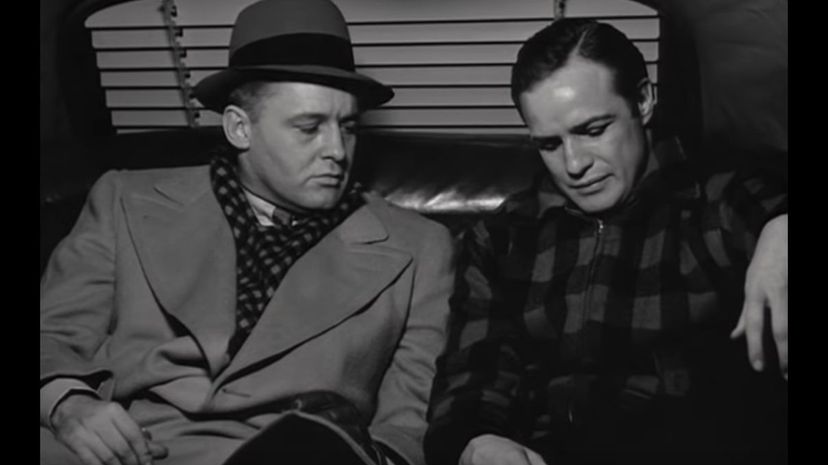
In "On the Waterfront," Marlon Brando stars as Terry Malloy, a once-promising boxer resigned to a life of desperation as a dockworker. Malloy faces a moral dilemma when his actions on behalf of a corrupt union boss lead to the death of a fellow longshoreman.
Advertisement
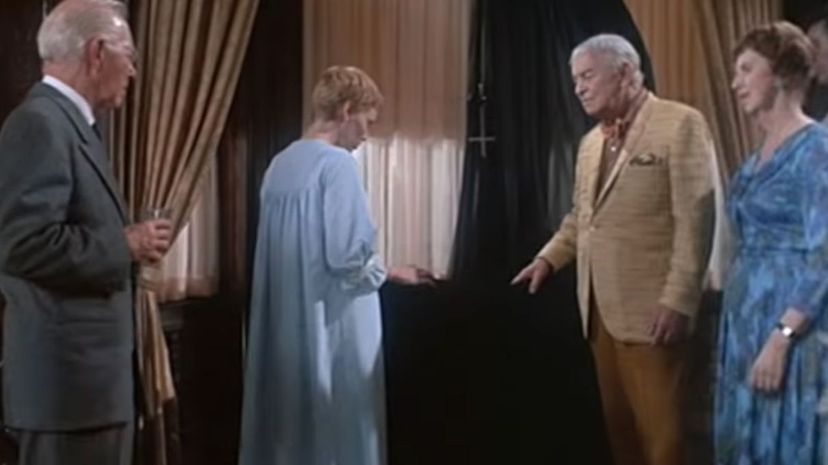
Based on Ira Levin's bestselling novel, "Rosemary's Baby" brings Satanism and supernatural horror to a domestic setting. The unwitting mother of Satan's son, Rosemary (Mia Farrow) is informed by her neighbor, cult leader Roman Castevet (Sydney Blackmer), that her newborn has "his father's eyes."
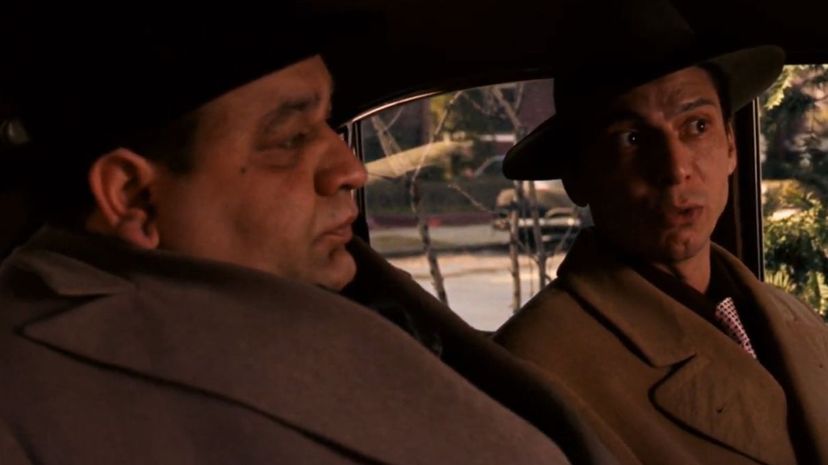
Francis Ford Coppola's 1972 classic mob drama "The Godfather," is a contender for best film ever made. One of the film's most memorable lines comes from pragmatic mobster and loyal family man Peter Clemenza (Richard Castellano) who instructs his hitman Rocco to "Leave the gun. Take the cannoli."
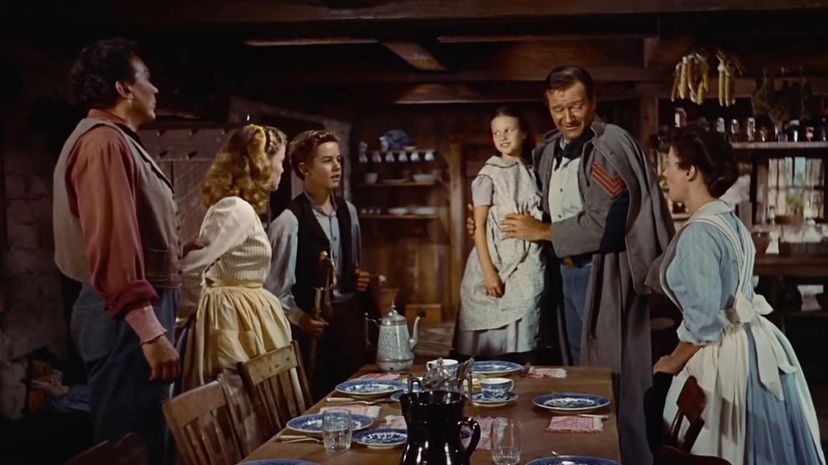
Although we might think of the action hero with a catchphrase as 1980s phenomenon, John Wayne pioneered the pithy retort in 1956 as Ethan Edwards in "The Searchers." Wayne says "That'll be the day" four times in the film. Inspired by Wayne, Buddy Holly used the phrase as the title to a hit song.
Advertisement
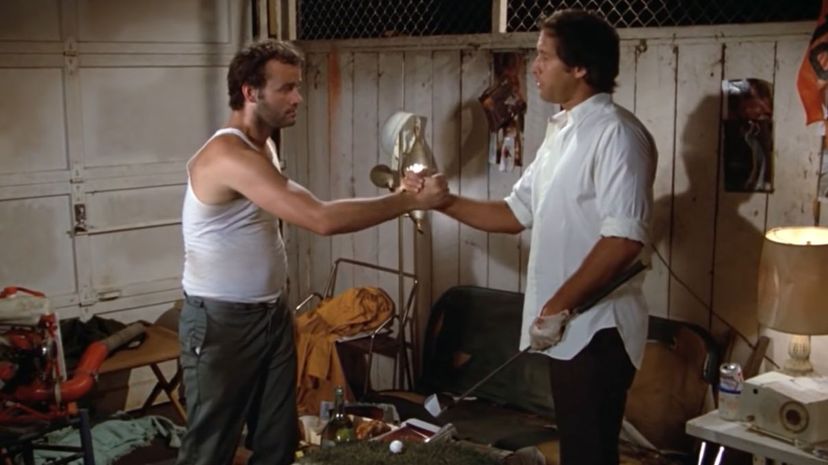
One of the funniest sports movies ever, the 1980 comedy "Caddyshack" has a classic line in nearly every scene. Fan-favorite groundskeeper Carl Spackler, played to perfection by Bill Murray, has more than his share of quotable dialogue, including his immortal "It's in the hole!"
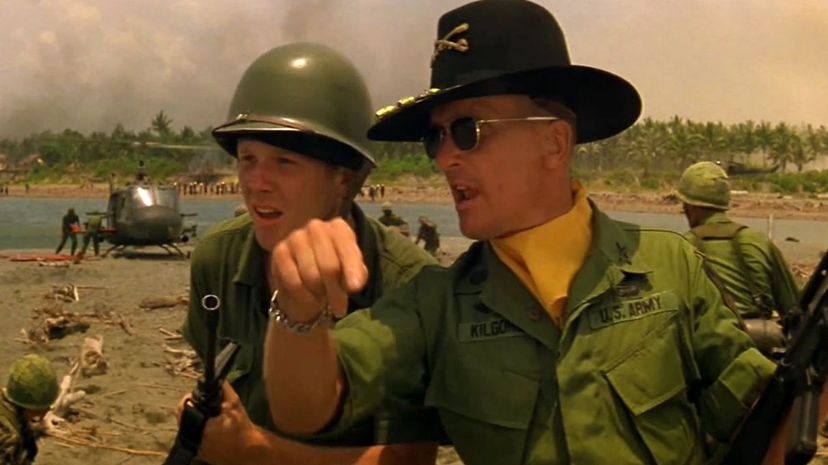
Based on Joseph Conrad's novel "The Heart of Darkness," Francis Ford Coppola's war epic "Apocalypse Now" is filled with larger-than-life characters. One of the most outlandish is the unflappable and confident Lieutenant Colonel Kilgore (Robert Duvall), who "loves the smell of napalm in the morning."
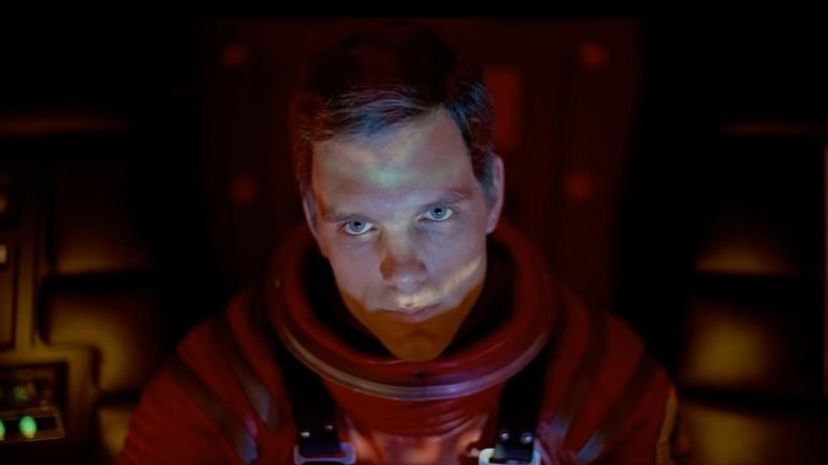
"2001: A Space Odyssey" is to this day one of the most complex science fiction films ever made. Addressing such heavy themes as human evolution and artificial intelligence, the film also gave us one of cinema's most frightening villains in the form of the insane computer HAL 9000.
Advertisement
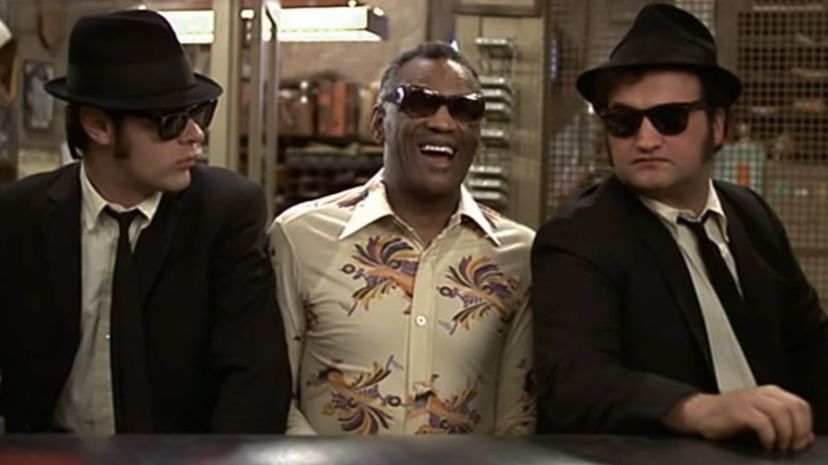
In John Landis' 1980 comedy "The Blues Brothers," Jake Blues (John Belushi) has quite an appetite. Hoping to enlist their old bandmate Matt "Guitar" Murphy for their holy mission, the musical brothers visit a soul food joint where Jake orders, but is denied, four whole fried chickens and a Coke.
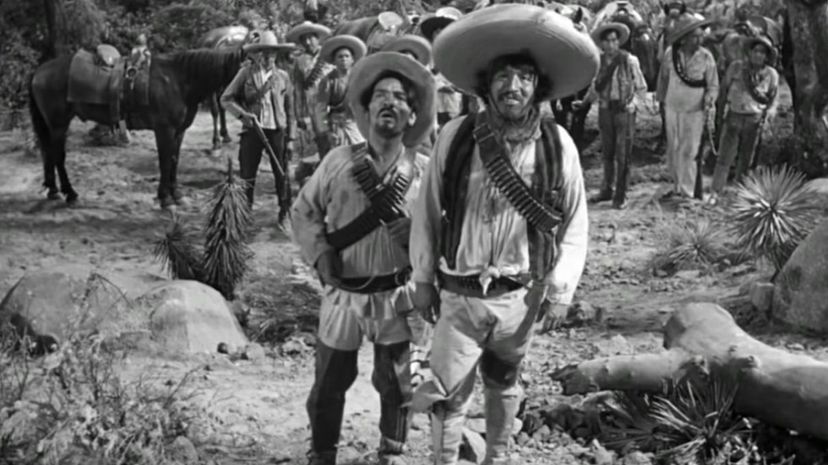
The "stinkin' badges" quote from John Huston's 1948 film "The Treasure of the Sierra Madre" is one of the most paraphrased and parodied lines in film history. Originally spoken by the bandit Gold Hat in the film, it has appeared for comic effect in everything from "The Monkees" to "Blazing Saddles."
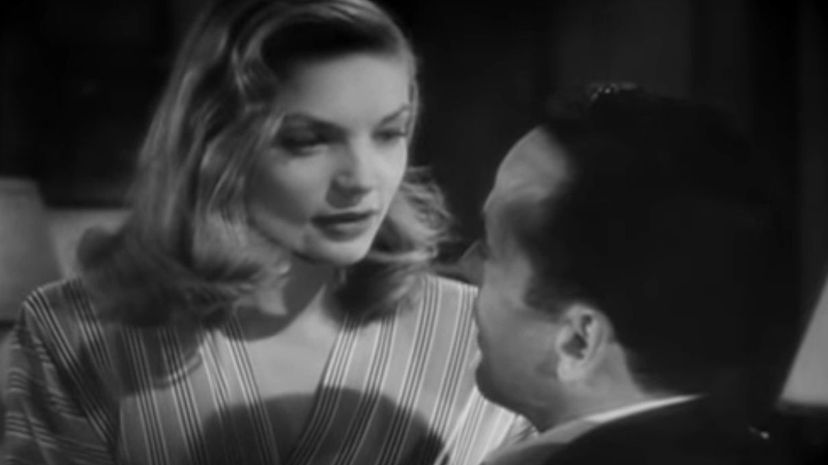
Lauren Bacall's vivacious Marie Browning, nicknamed "Slim" by Humphrey Bogart's Harry "Steve" Morgan, delivers one of the most seductive lines in film history in "To Have and Have Not." The line worked as well on Bogey as his onscreen alter ego. The couple wed a year after the film's release.
Advertisement
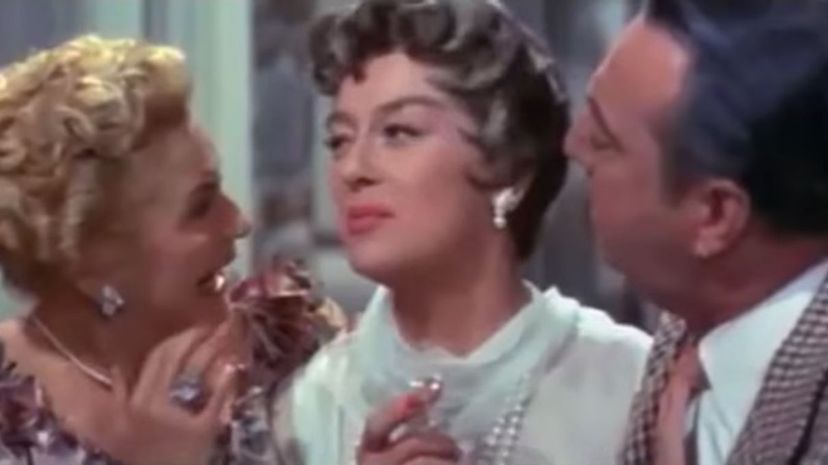
In 1958, Rosalind Russell brought the part she made famous on Broadway to the silver screen in "Auntie Mame." In the film, an orphaned boy is sent to live with his eccentric aunt whose philosophy is, "Life is a banquet, and most poor suckers are starving to death!"
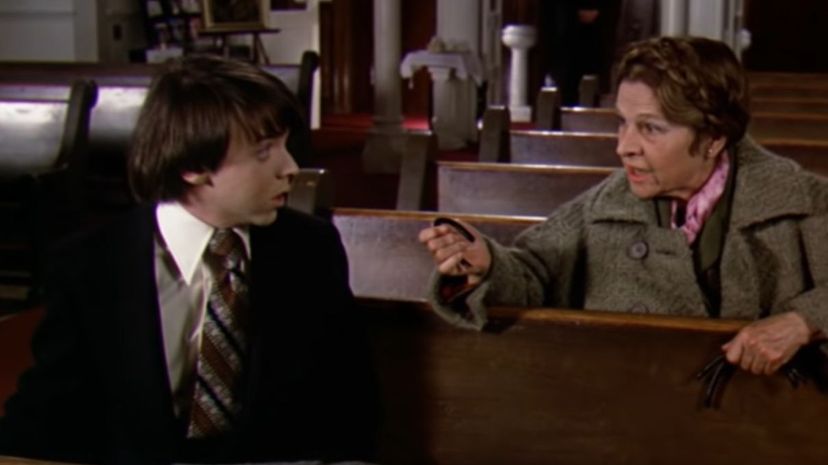
A death-obsessed teen and an elderly woman with a lust for life form an unlikely bond in 1971's "Harold and Maude." Maude wonderfully portrayed by Ruth Gordon, sums up her enthusiasm for living with a cheer to inspire her young beau Harold to "L-I-V-E, LIVE!"
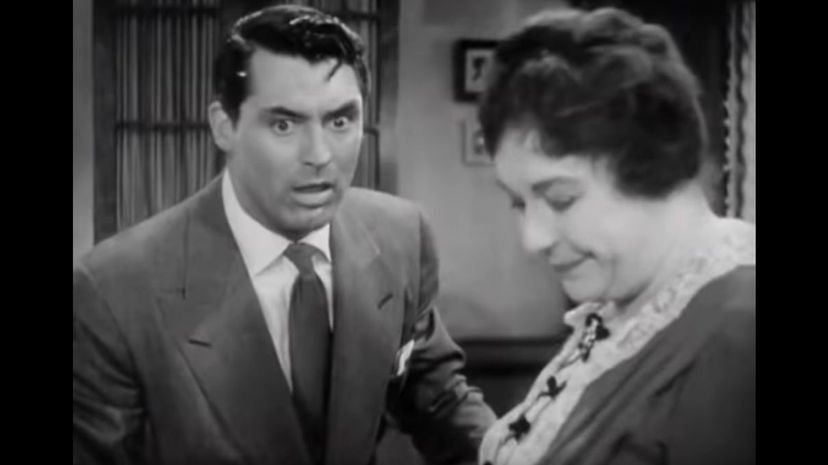
Cary Grant stars as writer and newlywed Mortimer Brewster, who discovers that his entire family is mad, and in some cases, homicidal, in the dark comedy "Arsenic and Old Lace." Fearing he may also be deranged, Brewster explains to his bride that insanity not only runs in his family, it "gallops."
Advertisement
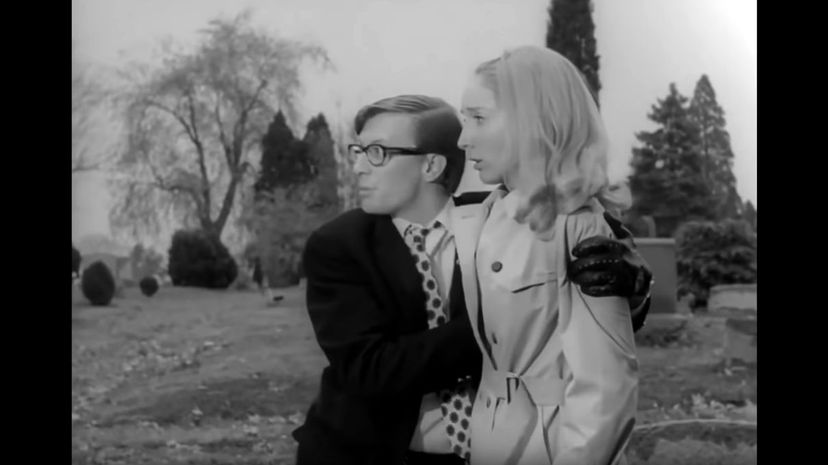
"Night of the Living Dead" brought the zombie to the forefront of pop culture. In the film, siblings Johnny (Russ Streiner) and Barbra (Judith O'Dea) visit a cemetery to place a wreath on their father's grave. Johnny tries to frighten Barbra, unaware that something really is coming to get them.
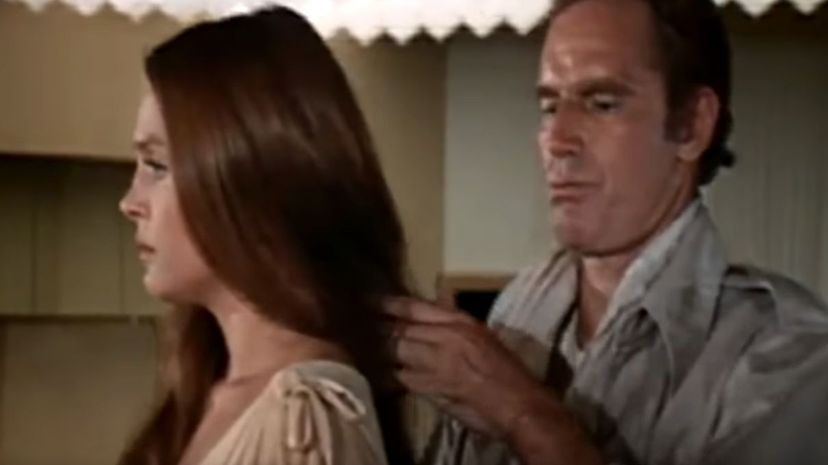
"Soylent Green" is a dystopian nightmare. In a future ravaged by overpopulation, Frank Thorn (Charlton Heston) stumbles onto a secret that could unravel society. Played for laughs on "SNL," Thorn's revelation that the food known as Soylent Green is made from human beings is still shocking.